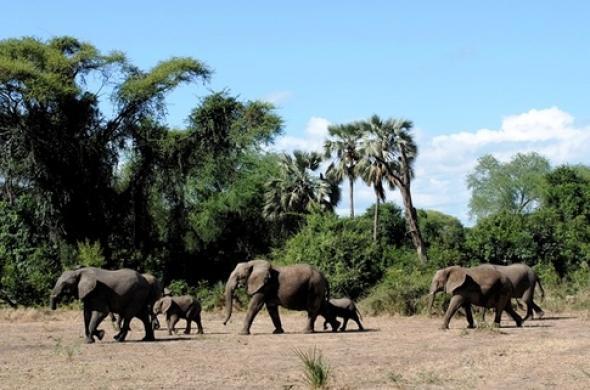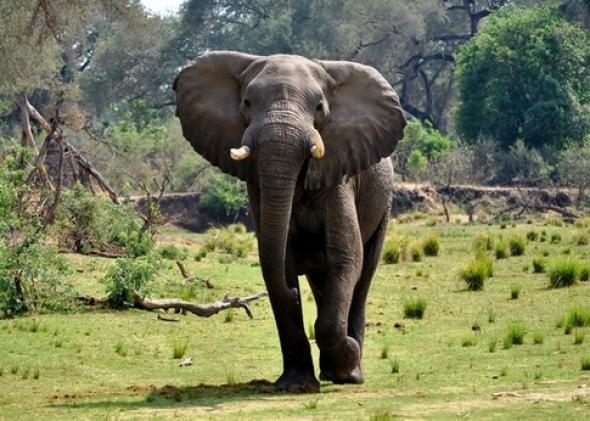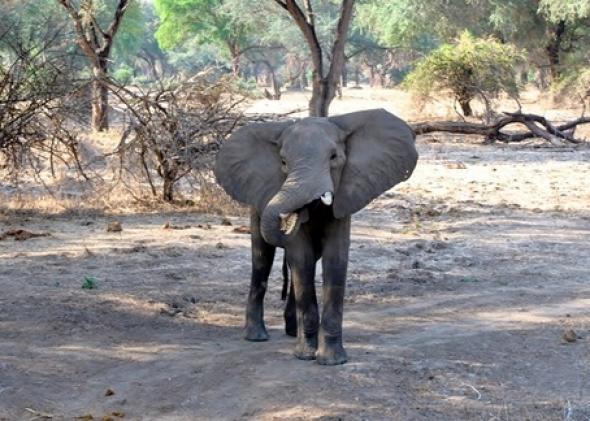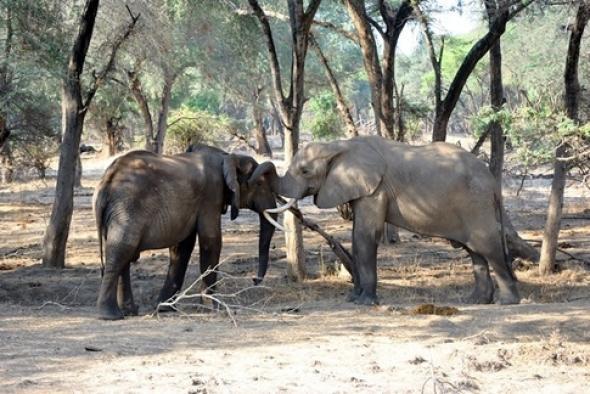This question originally appeared on Quora.
Answer by Rory Young, professional safari guide, ranger, and tracker:

Courtesy of Rory Young
Life is unfair. Life in the world of elephants is very unfair. Male elephants are much better off in so many ways than females.
Male elephants are large enough and powerful enough to defend themselves against any predator (except for man in very recent times). Therefore they are not obliged to stay with a herd for safety in numbers. Being able to move around on their own is a great advantage. Solitude means that a much, much smaller amount of food needs to be found every day.
Cow herds, on the other hand, are forced to roam great distances in order to find enough food to feed the whole group every day. This is a more stressful and dangerous existence, as the females and calves are vulnerable to attack by lions. Even adult female elephants can be attacked by lions. Linyanti Bush Camp in Botswana has been famous for its prides regularly bringing down adult female elephants. The cow herds, therefore, are very defensive and busy with less idle time.

Courtesy of Rory Young
So, elephant bulls have a lot more “idle” time on their trunks than the females. However, they don’t waste this extra time feeling lonely and standing around doing nothing. They get together with their buddies and do the elephant equivalent of arm-wrestling. They figure out dominance by fighting.
This fighting can range from mild, playful pushing to raging battles to the death. There is much language and ritual involved with bulls approaching one another and indicating their intention. This can be a casual approach with the trunk hung over one tusk to indicate a “relaxed” disposition or a head-held-high, roaring attack. The laid-back approach will usually be a casual session to figure out who is stronger, while the death match will usually involve two bulls in musth.

Courtesy of Rory Young
Musth is when a male elephant goes “into season.” He will have as much as 200 times the normal level of testosterone pumping through his system. When a bull goes into musth, he turns into a monster. All he wants is a female to mate with and will fight to the death to get it. Other bulls that are more dominant will get out of his way. As elephants never stop growing, the older bulls are usually more dominant. Musth allows younger, less powerful bulls a chance to “get their leg over.” There is a cost to this, though. A bull in musth hardly eats, as he only has one thing on his mind. He cannot stay in musth for more than three months or so or he would probably die. He loses a lot of weight during musth and comes out of it exhausted. The other big downside is, of course, that should he bump into another bull, then one or both of them will very likely be killed.

Courtesy of Rory Young
I will give you an example of the behavior of bulls in musth.
I was once driving along the Matusadona National Park shoreline in Zimbabwe. Matusadona is famous for its big-tusked elephants, and one of these huge fellows started moving fast toward me from half a kilometer away. There was no way he could see me from that distance, so he was heading toward the sound of the vehicle.
I stopped and waited for him. As he drew closer, I realized that he was in musth. All the signs were there, most notably his attitude. He was striding with his head high. When he was 100 meters away, he charged.
I drove away, just keeping the same distance between us to see what he would do. When he realized that he couldn’t catch up to me, he suddenly, in full charge, collapsed his front legs driving his tusks deep into the ground, all accompanied with loud roaring (not trumpeting).
There is another important advantage to bulls going into musth. It actually gives the females a break.
When a female goes into season, every male for miles around will try to mate with her. The whole herd will often try to chase off large numbers of excited males, and the poor females will become exhausted by it all. Hardly a situation likely to encourage conception.
When a bull in musth turns up, however, everything changes. The other bulls back off, and the female in season will attach herself to him so as to be left alone by all the others. The rest of the herd understandably encourages this.
Generally, males are not welcome among a herd, and females also do not socialize with females from other herds even. There is, of course, one great exception to this rule …
Every boy has to visit his mum from time to time!
More questions on Elephants:
